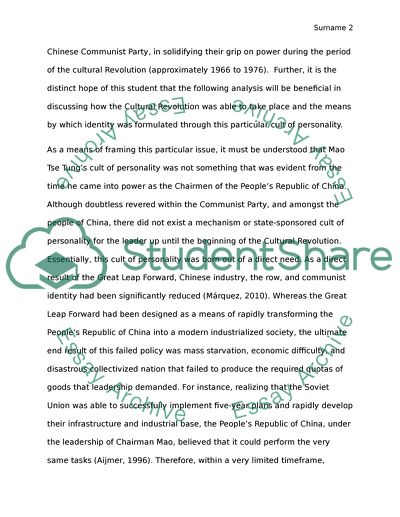Cite this document
(“Maos Cult of Personality Essay Example | Topics and Well Written Essays - 2000 words”, n.d.)
Retrieved from https://studentshare.org/history/1663832-maos-cult-of-personality-and-the-cultural-revolution-1966-1976
Retrieved from https://studentshare.org/history/1663832-maos-cult-of-personality-and-the-cultural-revolution-1966-1976
(Maos Cult of Personality Essay Example | Topics and Well Written Essays - 2000 Words)
https://studentshare.org/history/1663832-maos-cult-of-personality-and-the-cultural-revolution-1966-1976.
https://studentshare.org/history/1663832-maos-cult-of-personality-and-the-cultural-revolution-1966-1976.
“Maos Cult of Personality Essay Example | Topics and Well Written Essays - 2000 Words”, n.d. https://studentshare.org/history/1663832-maos-cult-of-personality-and-the-cultural-revolution-1966-1976.


